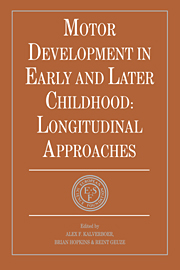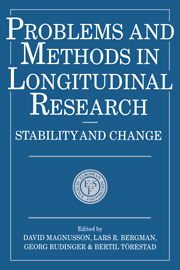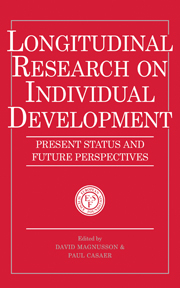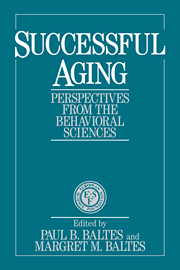4 results in European Network on Longitudinal Studies on Individual Development

Motor Development in Early and Later Childhood
- Longitudinal Approaches
-
- Published online:
- 05 May 2010
- Print publication:
- 25 February 1993

Problems and Methods in Longitudinal Research
- Stability and Change
-
- Published online:
- 27 April 2010
- Print publication:
- 12 December 1991

Longitudinal Research on Individual Development
- Present Status and Future Perspectives
-
- Published online:
- 22 March 2010
- Print publication:
- 18 November 1993

Successful Aging
- Perspectives from the Behavioral Sciences
-
- Published online:
- 22 March 2010
- Print publication:
- 30 November 1990

